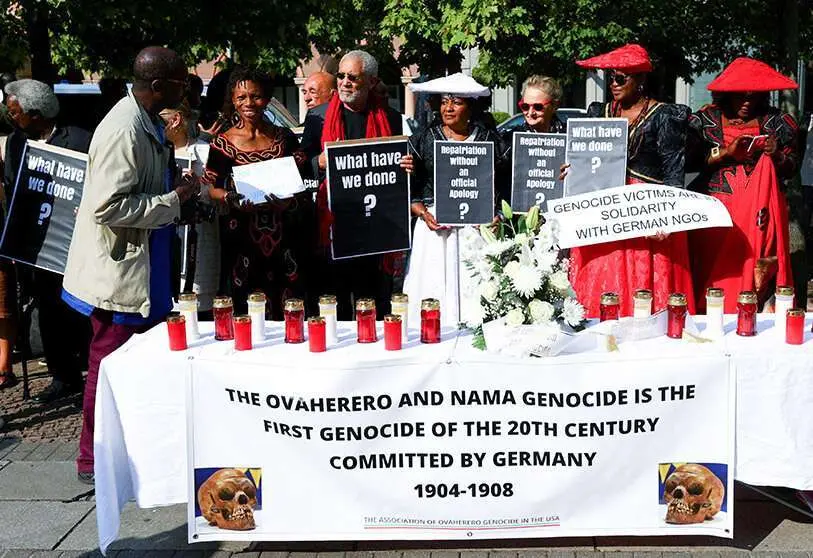Germany also recognises genocide in Namibia

The five years of negotiations between the German and Namibian governments over the genocide in Namibia have gone virtually unnoticed, and there has been hardly any echo.
Namibian and German governments have been conducting for five years. Finally, this Friday, a communiqué from the German Foreign Ministry came out, expressly acknowledging that Germany committed "genocide" against the Herero and Nama peoples, massacres with which the then German colonial power crushed the rebellions of both peoples.
Germany, which had participated in the division of the African continent at the Berlin Conference, was only able to "enjoy" its colonial rule over Namibia between 1884 and 1915. The outbreak of the Great European War, later known as World War I, would eventually deprive it of these territories as well.
The now recognised genocide began in 1904 when the Herero tribes, who made up 40% of the population in the inhospitable lands of the southwest African continent, revolted against the German settlers who had taken their cattle and land. A hundred of the settlers were killed by the Herero. This caused a huge commotion in Germany, prompting General Lothar von Trotha to put down the rebellion. The military officer did not mince his words and decreed the complete extermination of the rebels, issuing unequivocally genocidal orders: mass killings, banishment without food and water for some leaders and their families to set an example, and even strict confinement in concentration camps, of which the one known as Shark Island stood out for its extreme cruelty of treatment and conditions.
The 60,000 Herero exterminated were later joined by the Nama, who also revolted when the German settlers stripped them of their agricultural livelihoods. The repressive scheme adopted under von Trotha's orders was the same, and the end result was another 10,000 people killed.
The research drive for European racial superiority in general, and German racial superiority in particular, led to many skeletal remains, especially skulls, of the murdered victims being sent to various German scientific laboratories. One of the doctors stationed in Namibia, Eugen Fischer, was the driving force behind the scientific experiments on Shark Island, and is considered the forerunner of the Mengele and other Nazi doctors, who found abundant raw material for their studies in the extermination camps set up by Adolf Hitler.
In releasing the communiqué, the current head of German diplomacy, Heiko Maas, stated unequivocally that “We will now also officially call these events what they were from today’s perspective: a genocide... In light of Germany’s historical and moral responsibility, we will ask Namibia and the descendants of the victims for forgiveness".
The financial reparation agreement now concluded between Berlin and the current government in Windhoek stipulates compensation of 1.1 billion euros, to be paid over the next 30 years, to be used both for the reconstruction and development of Namibia and to improve the lives of the descendants of the Herero and Nama, who today make up barely 7% of the country's population.
The German Foreign Ministry makes it clear, however, that this economic settlement is not a consequence of any court judgement, closing the way to any claims that might be brought in any court of law. It is a political agreement, which aims to put an end to the poisoning of German-Namibian relations. "The past cannot be erased forever. Acknowledging it and apologising for it must pave the way for a better future for two reconciled peoples," reads the final conclusion of the communiqué.
This concludes five years of negotiations, at times full of bitter reproaches and pleadings. During the course of the negotiations, Germany had already made important gestures towards reconciliation, in particular the return of the remains of the exterminated Herero and Nama tribesmen. The then Secretary of State Michelle Münterfering handed them over to their descendants, begging "forgiveness from the bottom of my heart".

